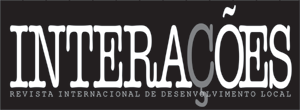Abstract:
Anthropology has created a relevant conceptual and methodological focus for research aimed at the understanding of cultural forms related to knowledge about health and the legal system. In the contemporary world, health anthropology and legal anthropology are spheres with diverse theoretical lines and diverse benefits. Due to the importance of these and other circumstances, it is necessary to hold debates about the Tapuia Indigenous People in the Cerrado of Goiás, especially to understand how these people develop culturally, overcome and resist conflicts and disputes over the land, and to understand the development of the customs of these people. In the current research, we used the bibliographic research method, descriptive, with a qualitative approach, based on conversations in a certain community. It is believed that the experience of the health-disease process by individuals, whether they are in an indigenous village or not, is rooted in the values, beliefs, practices, representations, imaginary, meanings, individual and collective experiences, reaffirming the sociocultural character of the phenomena that compose it, besides, of course, to the biopsychological factors involved in it. In conclusion, acquiring knowledge of the history of these peoples and seeking information − whether cultural, legal, or biological, that can contribute to a more contextualized communication and collaborative action − are bridges that need to be established to minimize the distance between indigenous and not indigenous agents.
Keywords:
indigenous; health; law; anthropology

 Thumbnail
Thumbnail
 Fonte: Adaptado de
Fonte: Adaptado de